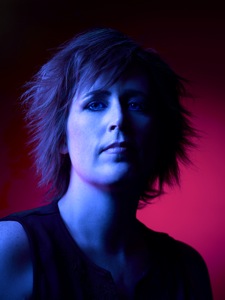Earlier this month, I taught Writing Dark Fantasy at the University of Toronto. It was an intensive one-week course, all day, every day. When I’d mentioned it to a fellow novelist, she declared she never teaches writing because she believes it sets up the false expectation that getting published is an easily attainable goal. Later, someone else asked me why I’d do it, when I didn’t “need the work.”
Whenever I teach anything longer than a brief workshop, I do pull out my stats to ensure students realize just how tough getting published is. If you’re writing to make money, you’re in the wrong business. If you’re writing because you love story-telling, then stick around, because it’s an amazing ride.
As for pay, it’s a distant consideration. When I’m asked to teach, I think of myself as a young writer, living in southwestern Ontario, where the only authors I saw were literary ones at readings. I would have loved the opportunity to learn from a published genre novelist. Even to be able to ask questions of someone who’d achieved my goal would have been an amazing experience.
I hope my students learned something in my course—ways to improve pacing, characterization, plot, etc. But what I consider even more important is that they found other writers like themselves. Others who are writing in the same genre, and not only know what a witch or vampire is, but can discuss the folklore of benandanti and wendigo.
What I loved seeing was the birth of a fledgling community of dark fantasy writers. They’d found their place, where no one was going to say “Werewolves? Oh, you’re trying to cash in on those Twilight movies, right?” When they shared their work, the excitement and enthusiasm was palpable. No one pouted or sulked over constructive criticism. They were happy to get feedback from people who understood the genre, and they were determined to eventually beat the odds and get published. And if they don’t? That’s okay too, because they realized what a blast they have telling these stories and exploring their own creativity.
By the time the course ended, my class had created their own Facebook group for socializing as writers, a Google Group for critiquing online and made plans for monthly in-person critiquing. Not everyone will stick with it. For some, the enthusiasm won’t outlast the first slew of rejections. But for others, they’ll have found their writing tribe and, maybe, a long-term critique partner who will help them achieve their goals (and never question why they’re writing about werewolves.)
Photo by Curtis Lantinga
Kelley Armstrong is the author of the New York Times bestselling Otherworld series, the young adult trilogy Darkest Powers, and many other titles. Her latest novel in the Otherworld series, Waking the Witch, comes out tomorrow, Tuesday, July 27th. She lives in rural Ontario with her husband and three children. With her first book, Bitten, Kelley introduced readers to her singular brand of sophisticated, fast-paced storytelling. The Otherworld, a place populated by a wide array of supernaturals with an even wider array of powers, continues to engage and enthrall readers all over the globe after more than a dozen books.










